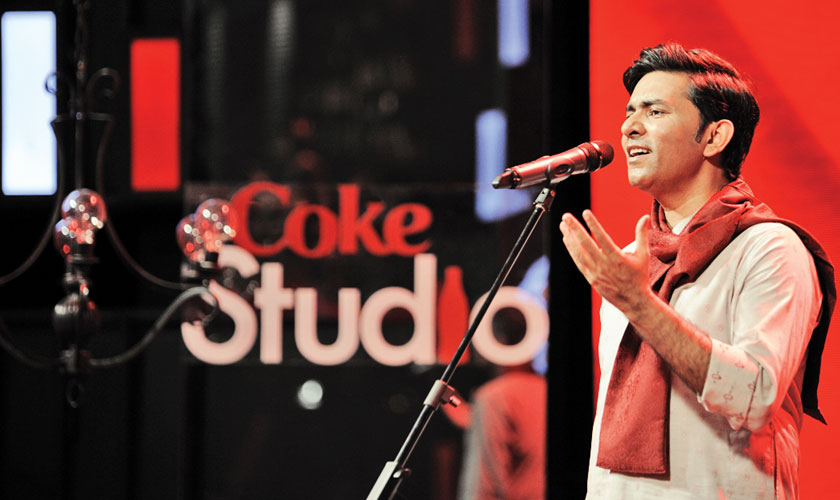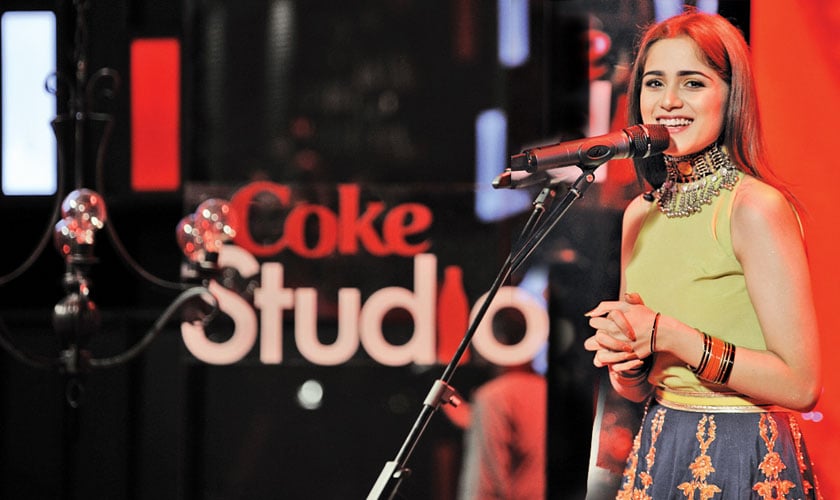Three episodes and 12 songs later, Coke Studio, Pakistan’s most disputed music production that is presently in its tenth incarnation, feels congested and out of ideas.
MusicMix
Mekaal Hasan rescues episode three from oblivion.
Three episodes and 12 songs later, Coke Studio, Pakistan’s most disputed music production that is presently in its tenth incarnation, feels congested and out of ideas.
The multiple music director(s) format introduced last year and pursued vehemently again this year has led to a sonic landscape that feels both stretched to capacity and boxed in. Coupled with a number of lackluster collaborations and an unnecessary amount of covers and it feels like the production is in desperate need of an overhaul.

Despite the monotony that tends to envelope proceedings and causes ambivalence in long-term fans, the one silver lining is that some artists - while staying with the prescribed Coke Studio sound realm - have managed to conjure meritorious moments.
The most recent example can be found in the third episode of the production that made its way across the digital and broadcast landscape this past Weekend.Though the episode contains four songs, the one that had the most merit and soul came from Mekaal Hasan, who is making his debut as music director this season.
The original, ‘Mujh Se Pahli Si Muhabbat’ composed by Rashid Attre with lyrics by Faiz Ahmed Faiz is an enduring classic that that is most prominently sung by the legendary Noor Jehan.
Hasan’s take on the song, featuring Humera Channa and Nabeel Shaukat is a blend of experimental, progressive and ambient ethos and it stays true to the theory of less is more. Hasan’s guitars and Ahsan Papu’s flute sync in harmony before fading out and it is a great display of control and contrast. As a tribute to Noor Jehan, this is one of the better productions to emerge from this season.

Unfortunately, everything else is downhill from here, at least partially. Sahir Ali Bagga’s debut as music director remains a question mark. In episode three, he presented ‘Baazi’ a song that has its roots in traditional folk and is a reinterpretation of a Saraiki classic, with additional lyrics by one Asim Raza. Despite the folk aspect, this song leads to cognitive dissonance and makes for an unworthy experience. Aima Baig who co-sings on the song, is essentially repeating the ‘Kalabaaz’ act. With its over-the-top sonic aesthetic, this one is neither here nor there.
Sajjad Ali’s debut as music director on Coke Studio is a letdown. While his ability to sing is certainly on dramatic display on ‘Rone Nah Diya’, his debut as music director from the same song is strictly average. It doesn’t come close to the playfulness of ‘Kirkir’ or the mournful, larger-than-life ‘Raag Laaga’ that appeared in season four of the production and featured Sajjad Ali alongside Sanam Marvi.
The fourth song, ‘Laal Meri Pat’, with music directed by Strings has sporadic elevating moments. The presence of a restrained and melancholic Quratulain Balouch is one. The commanding voice of Akbar Ali is another. The goose-bumps-inducing poetry spoken by Arieb Azhar is the third. The effort made by Strings to veer into unchartered territory sonically is certainly commendable as well.
But the one main problem here is that ‘Laal Meri Pat’ is too generic, even by Coke Studio standards. While this version is certainly a radical interpretation of an enduring original, it is so done-to-death as a folk anthem that one wonders if a better decision would’ve been constructing an original from scratch. The collective weight of QB, Akbar Ali and Arieb Azhar is enough to merit an original and it feels like this was a wasted opportunity.